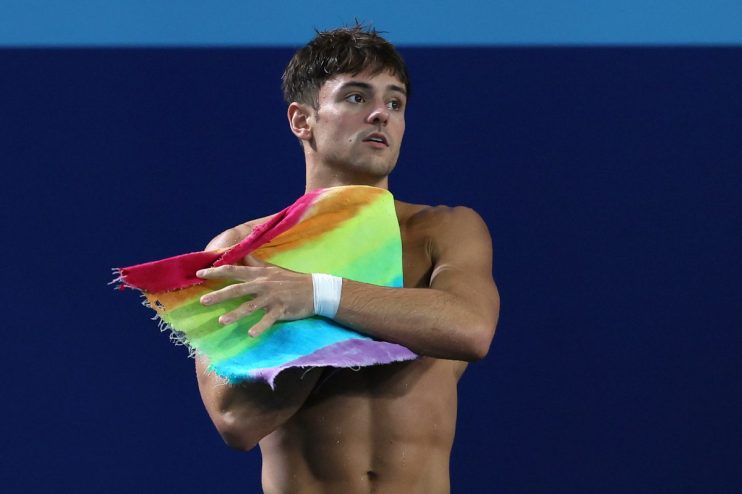The Olympics are about building a better world, not just muscles

There’s more to the Olympics than “faster higher, stronger” – they inspire generations to create a more tolerant, inclusive society, says Matt Hardy
The Olympic Games are more than sport and ego; they are an appreciation of dedication, patriotism and the highs and lows of humankind.
Already we have seen the sheer jubilation of Adam Peaty, Kimberley Woods and Simone Biles achieving goals of competing in Paris despite well-documented issues with mental health.
Last weekend we saw 11-year-old Zheng Haohao go for gold in skateboarding and on Tuesday 65-year-old Juan Antonio Jimenez Cobo rode atop his noble steed in the dressage – an age gap of over half a century yet both inspirational individuals.
We saw an out and proud Briton in Tom Daley and Brazilian Arthur Mariano compete in diving and gymnastics, while American LGBTQ+ icon Sha’Carri Richardson will shine in the 100m dash next week.
Saudi woman Mashael Al-Ayed set a new personal best in the pool this week, Egyptian fencer Nada Hafez announced she was competing seven months pregnant, Team GB had their first black female swimming Olympian, and Zhiying Zeng made her Olympic debut aged 58.
Olympics are about society
Sure “faster, higher, stronger”, on the face of it, is an egotistical representation of what we should be as a human race – or macho peacocking for the weak, plebeian onlookers depending on how you look at it.
But in an age of social media and the geo-blocking of Grindr in the Olympic Village to protect LGBTQ+ athletes from being outed in countries where they’d be outlawed; the Games are about building a stronger, more tolerant, society. Not muscle mass in biceps.
And while the argument of various Olympiads being a wasteful purge of taxpayer coffers is valid, that’s only the case when organisers choose to be wasteful.
The London 2012 Olympics, in all of its patriotic glory, was the last time this country could stand on the world stage and be proud of itself, even self indulgent about what we had achieved.
The 13,000 homes that came from the Olympic Park fell disgracefully short of promises, but Stratford and the surrounding area have benefited widely.
The move of West Ham into the London Stadium from the Boleyn Ground added another 1,000 homes to the area.
Over 1m people visit the aquatics centre every year and it is now a key hub for all ages, from kid’s swimming lessons to pensioner water aerobics.
Lee Valley attracts users all year round – with 90 per cent of programming at its venues designated for communities and schools, benefiting 24,000 people from disadvantaged groups, and nearly 10,000 elite tickets have gone to the community. The Olympic Park now has multiple university campuses, broadcasting hubs, the Copper Box Arena, Abba Voyage and a major rail hub.
Without the Olympics E20 would have continued to be a brownfield site sold in its entirety to the highest bidder. It would have seen no diversity in offering.
Why does it matter?
The Sport Consultancy states that Olympic and Paralympic sports contributed £25.5bn to the UK economy in 2021 and were responsible for nearly 500,000 jobs, meaning 2021 alone paid for the London 2012 Olympics three times over!
But why does this matter? It’s not really who can run the fastest. It’s about inspiring a generation.
Not only is indulging in anti-Olympics rhetoric being pro-Nimby, it’s choosing to deny people the chance to dream and be seen.
The opportunity to “see it, be it” is nowhere better represented than at the Olympics.
So to those who don’t see it for what it really is, flick on the mountain biking, archery or triathlon and try your hardest not to be enthralled by simply amazing people doing extraordinary things.
Matt Hardy is deputy sports editor of City A.M.